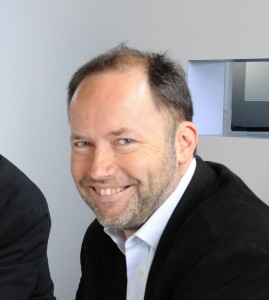 I am delighted to be able to congratulate Richard Berger and Bronwen Thomas / Julia Round in the Media School for being awarded grants from the AHRC! Congratulations – this is a huge success and a great achievement for the University.
I am delighted to be able to congratulate Richard Berger and Bronwen Thomas / Julia Round in the Media School for being awarded grants from the AHRC! Congratulations – this is a huge success and a great achievement for the University.
Also in the Media School congratulations are due to Kris Erikson for winning a grant from the Intellectual Property Office to undertake a project to inform the Hargreaves Review, Rosie Cullen for arranging the Southern Script Festival 2, Stephanie Farmer (Red Balloon) for securing a contract with New Master Planning to produce a short film, Matt Northam for winning another contract with Drum Cussac, Jon Wardle for securing a contract with Sony to provide CPD, Richard Berger for arranging the CEMP Media Education Summit 2012, and to Graham Goode for winning a contract with Dorset Wildlife Trust,
Congratulations are also due to Richard Stillman in the School of Applied Sciences for winning a contract with Ducks Unlimited to undertake bird modelling in the Humboldt Bay, Bronwen Russell and Jonathan Monteith for winning a contract with Dorset Ecology, and to Kathy Hodder for securing a contract with Fieldwork Ecological Services.
In HSC, congratulations are due to Joanne Holmes for securing a contract with Partners in Care, and to Peter Thomas, Zoe Sheppard and Sarah Thomas for winning a contract to deliver consultancy services to Poole Hospital NHS Trust.
In the School of Tourism congratulations to Adam Blake who has secured a small consultancy contract with Tourism Respect.
 Good luck to Richard Stillman (ApSci) with a bid to Darts Farm, Fabian Homberg (BS) for submitting a bid to the Intellectual Property Office, Martin Kretschmer (BS) for submitting a large bid to the AHRC, Carol Bond and Marilyn Cash (HSC) for a bid to Bournemouth and Poole PCT to evaluate the implementation and use of RISC software, Anthea Innes and Michele Board (HSC) for a bid to the NIHR, Tim Darvill and Bronwen Russell (ApSci) for a bid to English Heritage to continue the AIP project, Christos Gatzidis (DEC) for a bid to the European Commission, Carrie Hodges (MS) for submitting a bid to the British Academy to investigate transforming promotional cultures, Stephanie Farmer (MS) for a collaborative bid with Bovington Tank Museum to REACT, Jenny Piesse (BS) for a bid to the ESRC’s follow-on fund, Martin Kretschmer (BS) for an FP7 bid to the European Commission, Anthea Innes, Edwin van Teijlingen, Sarah Hean, Marilyn Cash, Fran Biley, Lee-Ann Fenge, Helen Buckley (HSC) for a bid to the Joseph Rowntree Society to review risk, trust and relationships in an aging society, Jonathan Parker (HSC) for a bid to the Higher Education Academy’s Doctoral Programme, and finally to Dan Franklin (ApSci) for a bid to NERC’s New Investigator Grant call. Good luck to you all!
Good luck to Richard Stillman (ApSci) with a bid to Darts Farm, Fabian Homberg (BS) for submitting a bid to the Intellectual Property Office, Martin Kretschmer (BS) for submitting a large bid to the AHRC, Carol Bond and Marilyn Cash (HSC) for a bid to Bournemouth and Poole PCT to evaluate the implementation and use of RISC software, Anthea Innes and Michele Board (HSC) for a bid to the NIHR, Tim Darvill and Bronwen Russell (ApSci) for a bid to English Heritage to continue the AIP project, Christos Gatzidis (DEC) for a bid to the European Commission, Carrie Hodges (MS) for submitting a bid to the British Academy to investigate transforming promotional cultures, Stephanie Farmer (MS) for a collaborative bid with Bovington Tank Museum to REACT, Jenny Piesse (BS) for a bid to the ESRC’s follow-on fund, Martin Kretschmer (BS) for an FP7 bid to the European Commission, Anthea Innes, Edwin van Teijlingen, Sarah Hean, Marilyn Cash, Fran Biley, Lee-Ann Fenge, Helen Buckley (HSC) for a bid to the Joseph Rowntree Society to review risk, trust and relationships in an aging society, Jonathan Parker (HSC) for a bid to the Higher Education Academy’s Doctoral Programme, and finally to Dan Franklin (ApSci) for a bid to NERC’s New Investigator Grant call. Good luck to you all!
Matthew





 Bournemouth University’s Director for the Centre for Intellectual Property Policy and Management (CIPPM), Professor Martin Kretschmer, has been invited to speak at the World Intellectual Property Organization (WIPO) in Geneva.
Bournemouth University’s Director for the Centre for Intellectual Property Policy and Management (CIPPM), Professor Martin Kretschmer, has been invited to speak at the World Intellectual Property Organization (WIPO) in Geneva. JISC
JISC





















 REF Code of Practice consultation is open!
REF Code of Practice consultation is open! BU Leads AI-Driven Work Package in EU Horizon SUSHEAS Project
BU Leads AI-Driven Work Package in EU Horizon SUSHEAS Project Evidence Synthesis Centre open at Kathmandu University
Evidence Synthesis Centre open at Kathmandu University Expand Your Impact: Collaboration and Networking Workshops for Researchers
Expand Your Impact: Collaboration and Networking Workshops for Researchers ECR Funding Open Call: Research Culture & Community Grant – Apply now
ECR Funding Open Call: Research Culture & Community Grant – Apply now ECR Funding Open Call: Research Culture & Community Grant – Application Deadline Friday 12 December
ECR Funding Open Call: Research Culture & Community Grant – Application Deadline Friday 12 December MSCA Postdoctoral Fellowships 2025 Call
MSCA Postdoctoral Fellowships 2025 Call ERC Advanced Grant 2025 Webinar
ERC Advanced Grant 2025 Webinar Update on UKRO services
Update on UKRO services European research project exploring use of ‘virtual twins’ to better manage metabolic associated fatty liver disease
European research project exploring use of ‘virtual twins’ to better manage metabolic associated fatty liver disease